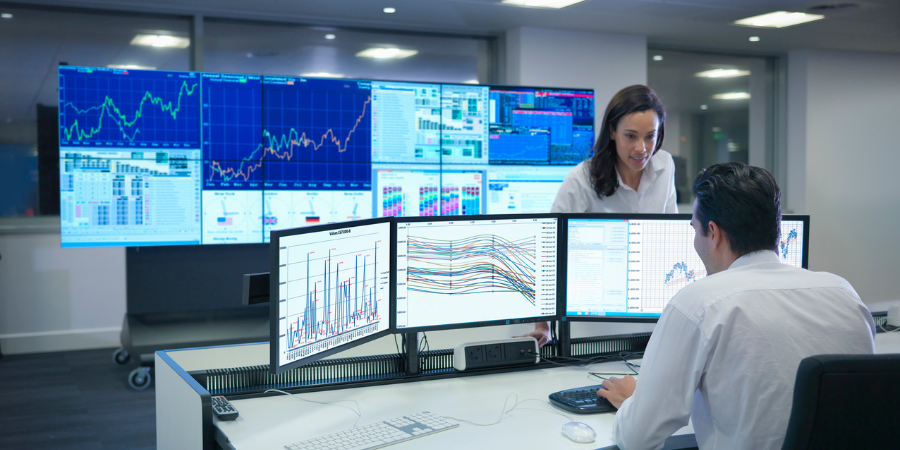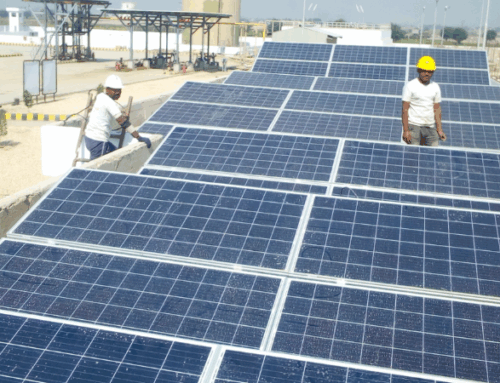In today’s complex energy landscape, the role of the electric grid operator is more crucial than ever. These operators are the unsung heroes behind the scenes, ensuring that electricity is delivered reliably from power plants across electric transmission lines and into homes and businesses. As the energy industry evolves with the integration of renewable resources and advanced energy technologies, understanding the responsibilities and challenges faced by electric grid operators is vital for anyone interested in the future of energy.
What Do Electric Grid Operators Do?
Electric grid operators, also known as system operators, are responsible for managing the real-time flow of electricity across the grid. They ensure that the balance between electricity supply and demand is maintained at all times, preventing blackouts and ensuring a stable power supply. This involves monitoring the grid’s performance, responding to disturbances, and coordinating the generation, transmission, and distribution of electricity.
Electric grid operators perform a wide range of tasks, including:
- Forecasting Electricity Demand: Anticipating how much power will be needed at any given time. In fact, they forecast hourly electricity demand each day to ensure that there is enough supply from generators.
- Scheduling Power Generation: Deciding which power plants should operate to meet demand.
- Managing Transmission Lines: Ensuring the safe and efficient flow of electricity across high-voltage transmission lines, doing their best to avoid line losses.
- Responding To Outages: Quickly addressing and resolving any disruptions in power supply.
These tasks are essential for the smooth operation of the electric grid, which is the backbone of modern society’s essential energy infrastructure.
The Grid Operator’s Role In The Energy Industry
Electric grid operators play a pivotal role in the energy industry by ensuring the continuous and reliable transportation of electricity from generation sources to end-users. Their work directly impacts the efficiency of the energy system, the stability of wholesale electricity prices, and the overall energy security of the nation. Without effective grid management, the integration of renewable energy sources, the stability of electricity supply, and the safety of the grid would be at risk.
Moreover, grid operators are increasingly involved in facilitating the energy transition to cleaner sources by managing the complexities associated with renewable energy integration. This includes handling the variability of wind and solar power and ensuring that the grid can accommodate distributed energy resources like rooftop solar panels, commercial energy storage systems, and electric vehicles.
Types Of Power Operators & Their Roles
Power grid operators can be categorized into several types, each with distinct roles and responsibilities within the energy system. These include Transmission System Operators (TSOs), Distribution System Operators (DSOs), Regional Transmission Organizations (RTOs), and Independent System Operators (ISOs). Let’s explore each of these roles in more detail below.
TSO (Transmission System Operator)
A Transmission System Operator (TSO) is responsible for the transportation of electricity over long distances via high-voltage transmission lines. TSOs ensure the reliability and stability of the bulk power system and coordinate with neighboring grid operators to manage electricity flows across different electric grids and regions. They play a critical role in balancing electricity supply and demand on a large scale, often spanning entire states or countries.
DSO (Distribution System Operator)
A Distribution System Operator (DSO) manages the lower-voltage distribution networks that deliver electricity directly to homes and businesses. DSOs, often local utility companies, are responsible for maintaining and upgrading distribution infrastructure, managing local grid conditions, and integrating distributed energy resources (DERs) like solar panels and energy storage systems. As the grid becomes more decentralized, the role of DSOs is becoming increasingly important in managing local energy flows and ensuring grid resilience.
RTO (Regional Transmission Organization)
Regional Transmission Organizations (RTOs) operate the transmission grid across multiple states or regions. They are responsible for ensuring the efficient and reliable operation of the grid, facilitating wholesale electricity markets, and planning for future transmission needs. RTOs work to ensure that the wholesale electricity market operates fairly and transparently, benefiting both electricity suppliers, utility companies, and consumers.
ISO (Independent System Operator)
An Independent System Operator (ISO) is similar to an RTO but typically operates within a single state or a smaller geographic region. Like RTOs, ISOs manage the transmission grid, balance electricity supply and demand, and oversee the operation of wholesale electricity markets. They are crucial in regions where the electricity market has been deregulated, allowing for competition among electricity suppliers.
Current Grid Challenges In The U.S.
Electric grid operators in the United States face several challenges that require innovative solutions and forward-thinking energy strategies:
Aging Infrastructure
Much of the nation’s electrical grid infrastructure is aging, leading to increased maintenance needs and the risk of failures. Upgrading and modernizing the grid is a significant challenge that requires substantial investment.
Renewable Integration
The growing share of renewable energy sources, such as wind and solar, introduces variability and uncertainty into the grid. Because the sun doesn’t always shine and the wind doesn’t always blow, grid operators must develop new tools and strategies to manage these intermittent resources effectively.
Cybersecurity Threats
As the grid becomes more digitalized, it becomes increasingly vulnerable to cyberattacks. Protecting the grid from these threats and enhancing energy security is a top priority for operators.
Climate Change
Extreme weather events, driven by climate change, are becoming more frequent and severe, posing a significant risk to grid stability. Grid operators must be prepared to respond to and mitigate the impacts of these events.
Opportunities For The Future Of The Grid
Despite these challenges, there are numerous opportunities for improvement in the role of electric grid operators:
- Grid Modernization: Investing in smart grid technologies and advanced monitoring systems can enhance the grid’s resilience and efficiency. This includes deploying sensors, automated controls, smart meters, and real-time data analytics to better manage the grid.
- Energy Storage: The integration of energy storage systems can help balance supply and demand, store excess renewable energy, help with load shaving, and improve grid stability. Grid operators can leverage these technologies to manage peak loads and reduce reliance on fossil fuels.
- Enhanced Collaboration: Greater collaboration between TSOs, DSOs, RTOs, and ISOs can lead to more efficient grid management and the seamless integration of distributed energy resources. This collaboration is essential for optimizing the grid’s performance and ensuring reliability. Several orders from FERC, such as FERC 2222, currently require grid operators to coordinate with DER asset owners.
- Decentralized Energy Systems: Embracing decentralized energy systems, where consumers can generate and store their own electricity, can reduce the strain on the central grid system and enhance energy security. Grid operators can facilitate this transition by enabling more flexible and dynamic grid management.
What This Means For U.S. Energy Customers
For energy customers, the role of electric grid operators is critical in ensuring that electricity is delivered reliably and affordably. As grid operators adapt to new technologies and challenges, customers can expect more stable electricity prices, fewer outages, and increased opportunities to participate in the energy market, such as selling excess power back to the grid.
In the broader energy market, the work of grid operators influences everything from wholesale electricity prices to the success of renewable energy projects. A well-managed grid supports a competitive and transparent energy market, enabling innovation and promoting the growth of clean energy.
Want To Learn More About The Role Of The Electric Grid?
Electric grid operators are the backbone of the energy industry, ensuring that electricity is delivered safely and efficiently from generation to consumption. As the energy landscape evolves, the role of these operators will become even more crucial in managing the complexities of a modern, decentralized grid. At Diversegy, we support grid modernization and are on the cutting edge of the latest energy technologies. Contact our team of market experts today to learn more about how grid modernization might affect your business.



